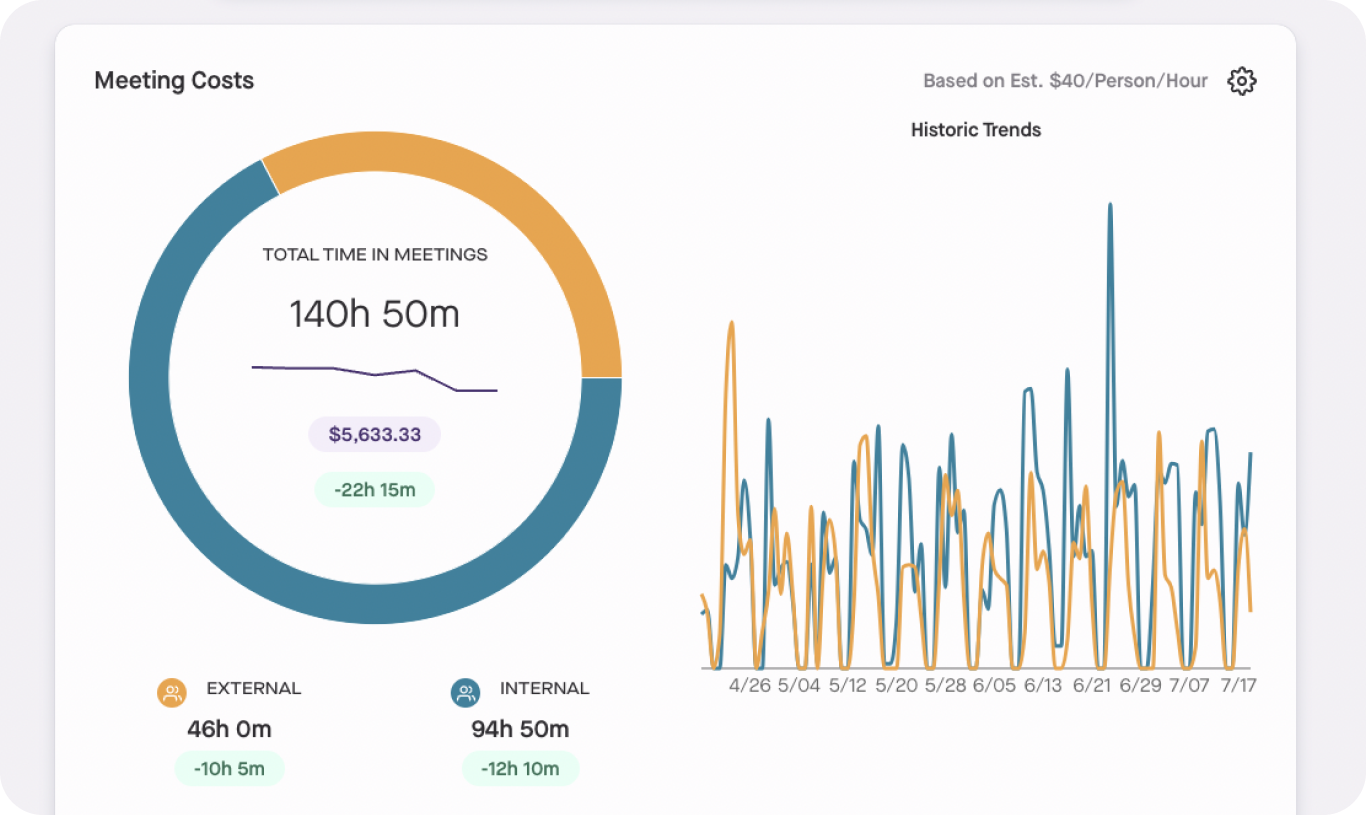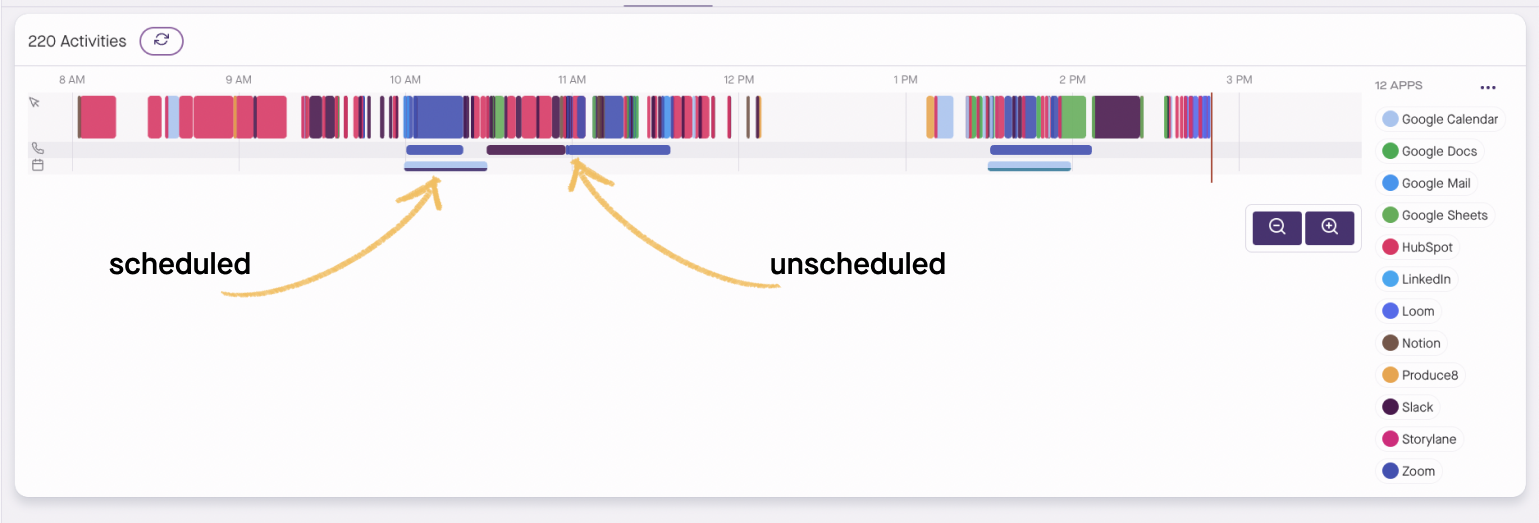Produce8
MSPs looking for the Produce8 Playbook, look no further!
Too Many Meetings? Here Are 8 Stats You Need to Know About How Meetings Cost Businesses
Understanding the impact of meeting overload on business efficiency is crucial. Meetings are essential for collaboration and decision-making, but excessive and poorly managed meetings can significantly drain an organization’s resources and hinder productivity.
Struggling to help your teams have better workdays? You’re not alone! In this article, we will analyze some of the most shocking statistics around meeting overload and help you examine your organization's current meeting culture. Armed with this knowledge, you can make changes to improve employee satisfaction and overall operational efficiency.
1. There Are Too Many Meetings
The average employee participates in at least eight meetings each week , which equates to more than one meeting per day. This number only increases with seniority, as the average executive manager attends at least 12 meetings per week.
This data underscores the need to evaluate how these frequent meetings impact your workday.
2. Meetings Are Expensive
Unproductive meetings are a significant concern, with an estimated $37 billion lost annually in the United States due to inefficient meetings, according to Flowtrace.
Understanding the financial cost of these meetings can help businesses realize the importance of streamlining their processes. Enter Produce8, which can show you the organizational cost of meetings .

3. Meetings Are Draining
One in four employees suffer from “Zoom fatigue” during meetings, according to Pew Research. This emphasizes the importance of considering the mental and physical toll of excessive meetings on employees.
4. Scheduling Meetings Is Work
Office workers waste an average of one hour and 42 minutes per week scheduling and rescheduling calls. This suggests that improving scheduling efficiency could free up significant time for more valuable work.
5. Meetings Are Getting Longer
Time spent in meetings has been rising by 8% to 10% every year since 2000. Recognizing this trend can help businesses implement strategies to curb the increasing length of meetings.
Produce8 allows your team to easily see the scheduled block for meetings in their Calendar. This enables your organization to have a better grasp on how long meetings are lasting.

6. Meetings Have Too Many Attendees
More than 22% of meetings have at least eight attendees, according to Fellow. This results in over 15 hours of meetings per week on average, leaving little time for execution.
This data shows that smaller, more focused meetings could be more effective.

7. Unscheduled and Ad Hoc Meetings
Sixty-six percent (66%) of 1:1 calls are unscheduled, according to HBR. This means that employees’ workdays are often interrupted with spontaneous video calls on apps like Slack and Microsoft Teams. These interruptions disrupt their workflow and focus.

8. Meetings Cause Delays
Seventy percent (70%) of meetings cause delays in completing essential work, according to research from Bloomberg. This aligns with findings that indicate 92% of workers feel meetings keep them from their regular work duties.
Such disruptions highlight the need for more efficient meeting practices, which can ensure that essential tasks are not sidelined.
We Can Fix This
While meetings are a vital aspect of business operations, their overabundance can be a significant drain on time, resources, and employee morale.
Here’s one last stat for you: A Harvard Business Review study found that when companies reduced meeting time by 40%, worker productivity increased by 70%. But we know that the solution is not as simple as cutting out meetings from your schedule. After all, your team still needs to collaborate. Instead, we’re suggesting you stop running initiatives without data.
Produce8 helps the whole team get on the same page regarding the current meeting culture. By linking their calendar and meeting apps, teams can address meeting issues with data-driven insights, allowing everyone to measure the effectiveness of changes.
Interested in seeing how meetings are impacting your organization? Book a live demo with our team.
Related Aritcles
Digital Work Analytics reporting
AIRO Part 4 - From Reactive IT to Managed AI - The Next Evolution for MSPs
2 min read
Unlock great workdays
Wether you are collaborating with your team or solo tackling your day we can help you recover the most valuable asset, time.
